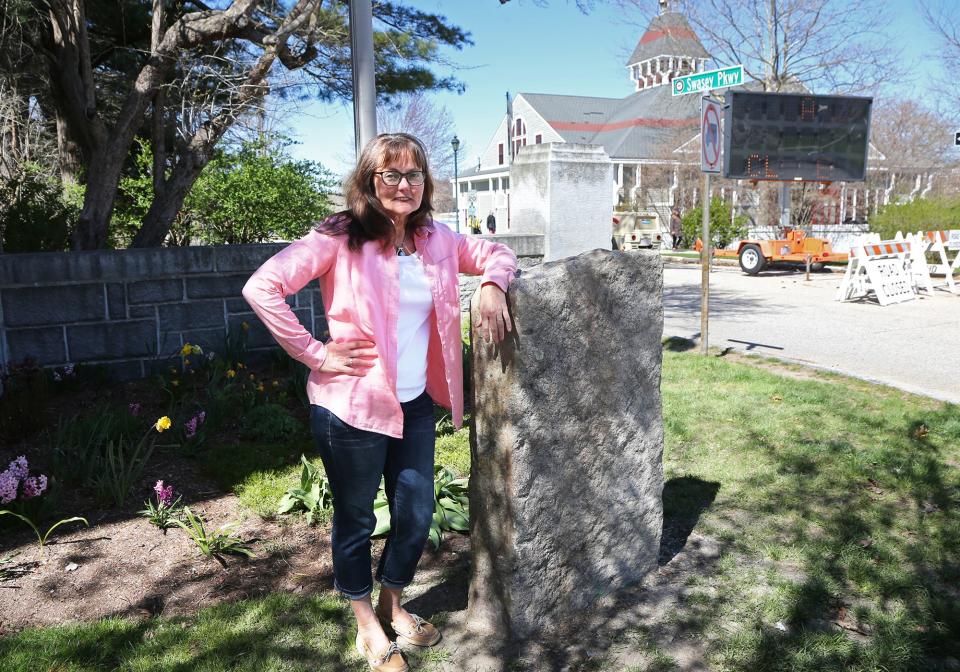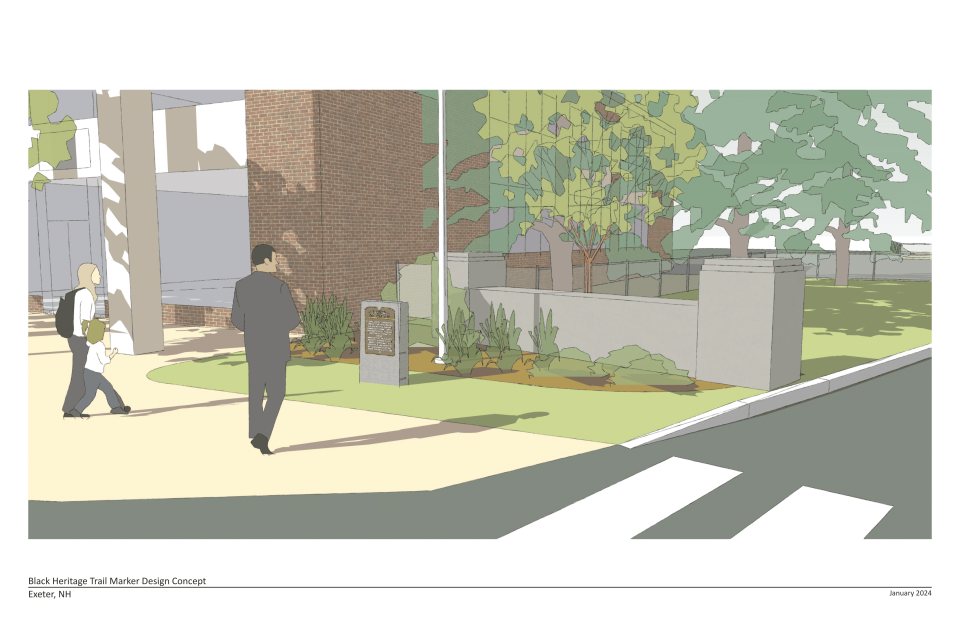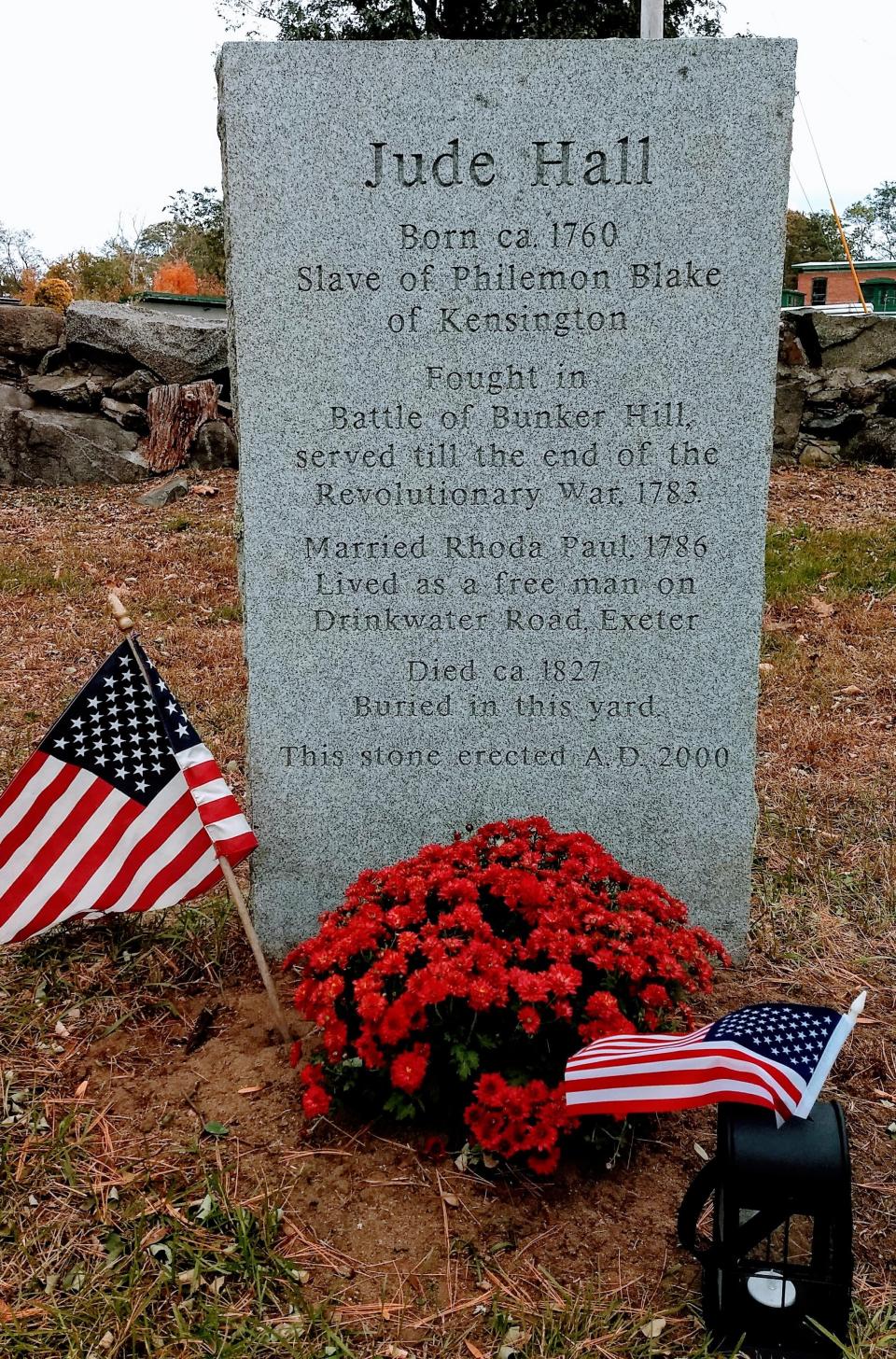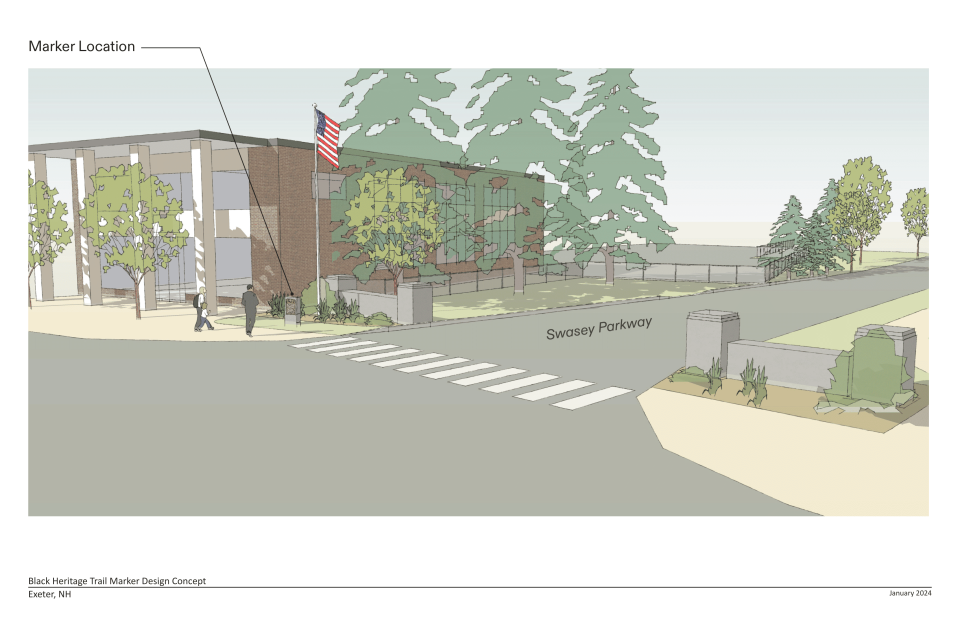Exeter’s new park to shed light on Black Revolutionary War heroes: 'A long time coming'
EXETER — Renay Allen could not recall when she read "Lies My Teacher Told Me," but she’s glad that she did.
“I thought that slavery was mostly a southern issue,” she said. “But then, while researching something else, I came upon the Jude Hall story."
Jude Hall won his freedom from slavery fighting in the American Revolutionary War, where he served from 1775 to 1783. After the war, he and his wife Rhoda made Exeter their home, near the Kensington line. However, heartbreak befell the family when their three sons, all born into freedom, were kidnapped into slavery.
"I just started thinking about what a raw deal the family got – for a man that fought for so long in the war and then to have his three sons kidnapped – I was really motivated to bring that story to light.”

Since that time, Allen has been at the forefront of numerous initiatives dedicated to make the town's Black history "more mainstream." That included self-publishing three novels that share the story of Jude Hall, nationally known Abolitionist poet James M. Whitfield and John G. Cutler, a Black business entrepreneur who grew up in Exeter and owned the Sea View Hotel and Cutler's Cafe at Hampton Beach.
Now, she, in conjunction with the Black Heritage Trail of New Hampshire, is opening a new pocket park in town to honor Exeter's Black Revolutionary War soldiers and their families.
The Exeter Black History Pocket Park, or as Allen calls it the “patriotic garden,” will be located before the entrance to Swasey Parkway at 223 Water St. at the American flagpole, directly across from the American Independence Museum.

The unveiling ceremony of the park will be on Saturday, May 4, at 10 a.m.
Legacy cemented: Exeter Fire Chief Eric Wilking retires after 42 years
Exeter became home to many Black Revolutionary War veterans
Town historian Barbara Rimkunas has written a number of columns on Exeter's Black Revolutionary War heroes as part of her monthly column in the Exeter News-Letter.
"Exeter, in earlier times, was more racially diverse than it is today," she wrote in a 2018 column. "It should not surprise us that there were Revolutionary War veterans among those families in town."
A number of Black men won their freedom from slavery by fighting in the Revolutionary War.
"There were some good incentives for joining the army," Rimkunas wrote. "Enslaved men would earn their freedom by fighting – although it sometimes took some negotiation to convince their masters to agree. "

After the war, nearly a dozen Black veterans chose Exeter to "start over in a place away from their old masters."
According to the first U.S. census, Exeter had the highest percentage of Black residents in New Hampshire at nearly 5%.
Rimkunas noted that David Dixon, who published “Freedom Earned, Equality Denied: The Free Black Community of Exeter, New Hampshire,” theorized that “Exeter may have become a magnet for groups of Black Revolutionary War veterans because of its abundance of educational opportunities.”
Exeter’s schools were open to people of any race.
Allen said the building that now houses the American Independence Museum served as the location where veterans received their military pensions.
Several Black merchants enjoyed success, living above their downtown shops for two generations, with a couple amassing significant wealth. Cutler, the grandson of an enslaved man who fought in the Revolutionary War, became known in the New Hampshire Republican Party as a "kingmaker," hosting four presidents and other famous people at his Hampton Beach hotel.
Exeter's Black population started to dwindle as the Civil War neared.
"Faced with a nationwide increasing era of prejudice and overt racism, together with the lack of meaningful work, understandably, the African Americans of Exeter left for more economic opportunities and social acceptance found in larger cities of New England and elsewhere," the Exeter Historical Society wrote in their history of African Americans in Exeter.
More: 'Massive' apartment building pitched in Exeter. Critics say it 'dwarfs' town hall.
'Patriotic garden' a 'very long time coming'
Allen said it's been a "very long time coming" for the park. She first pitched the idea in 2021 with the plan to use proceeds from her books to pay for it.
Initially, Allen said she only planned on writing the first novel about Jude Hall. But when COVID-19 struck, she decided to keep writing, researching and profiling other Black histories in town.
“I had used the stories of other people, so I didn’t want to take the profits from them," Allen said. "So, I thought it might be a nice idea to funnel these profits back into tangible evidence that this historical community once existed.”

With support from the Select Board and help from volunteers, the town formed an ad hoc committee for the park and partnered up with the Black Heritage Trail of New Hampshire to help make the vision come to life.
“It’s perfectly what I think the money should be used for,” said Allen.

Allen said the pocket park also represents a milestone for Exeter in acknowledging the town’s Black history.
“Before I started (in 2021), there were little to no markers that had anything to do with the Black history or any of the past citizens,” she said. “Now, there are three or four markers that are in town and I hope it continues.”
One of the markers in town is a stone step in honor of Jude Hall at the American Independence Museum and another is plaque at 127 Water St. in honor of John G. Cutler.
Allen said she chose a high-volume location for the pocket park to increase visibility and awareness.
“It’s such a high-profile area that I think a lot of people will come across it just in their daily walking and read it and begin to understand that there’s a fuller history of Exeter than they realized in the past,” she said. “Whatever they choose to do with that information, I hope it helps to work with kind of a larger healing across the country.”
This article originally appeared on Portsmouth Herald: Exeter’s new park to shed light on Black Revolutionary War heroes

